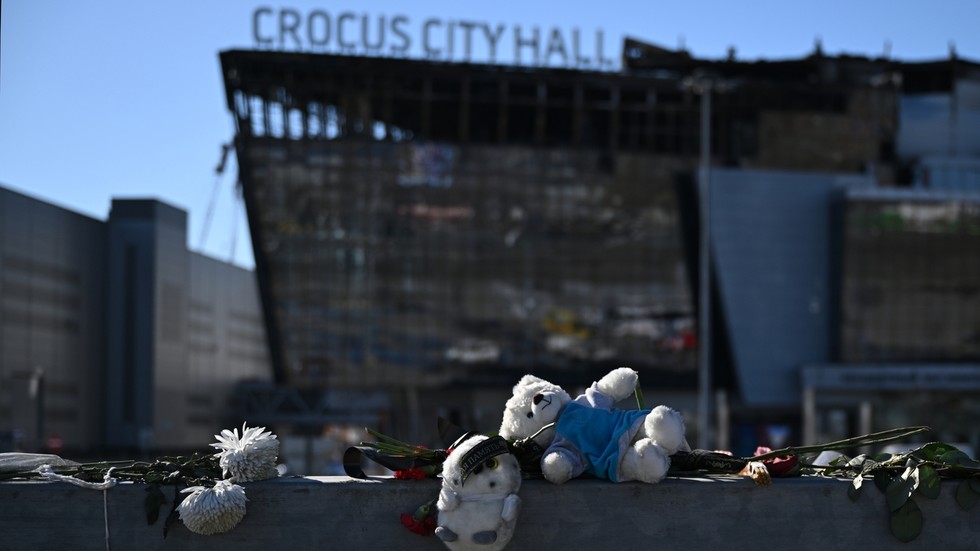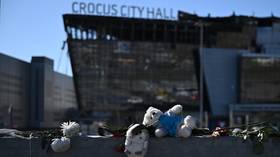
The head of Russia’s Investigative Committee has chaired a meeting on the March 22 atrocity

FILE PHOTO: Soft toys and flowers left in front of the Crocus City Hall music venue outside of Moscow in commemoration of the victims of the terrorist attack. © Sputnik / Grigory Sysoev
Russian law enforcement has uncovered a potential link between Ukrainian special services and last month’s terrorist attack at a music hall outside Moscow, the Investigative Committee said on Monday.
The statement was released after a meeting chaired by Aleksandr Bastrykin, head of the Russian agency, where progress in the high-profile case was discussed. The report declined to provide details on what was said at the gathering, only citing “significant evidence” of Kiev’s involvement and repeating information that was already publicly available.
The attack involved four gunmen, who stormed Crocus City Hall ahead of a concert. They made their way to the main auditorium, shooting indiscriminately, and set the building on fire. Over 140 people were killed.
The four suspected perpetrators and seven alleged accomplices have been arrested. Russian officials have expressed a strong suspicion that the crime was masterminded by the Ukrainian government, which supposedly used radical Islamists to carry it out.
Kiev has denied the allegations, and initially claimed that Moscow was behind the attack. It later sided with Western nations, which maintain that ISIS-K, the Afghanistan-based offshoot of the international terrorist organization Islamic State (IS, formerly ISIS) had orchestrated the massacre. The group has claimed responsibility.
READ MORE: FSB reveals Crocus City attackers’ plan to escape to Ukraine
On Sunday, Russia’s FSB security agency released records of interrogations of the suspected gunmen, who claimed that they were given instructions to flee towards the Ukrainian border after the strike. The four were apprehended in the Bryansk region, hours after the massacre.
Russian investigators previously claimed to have found a money trail linking the alleged terrorists to Ukrainian nationalists.




